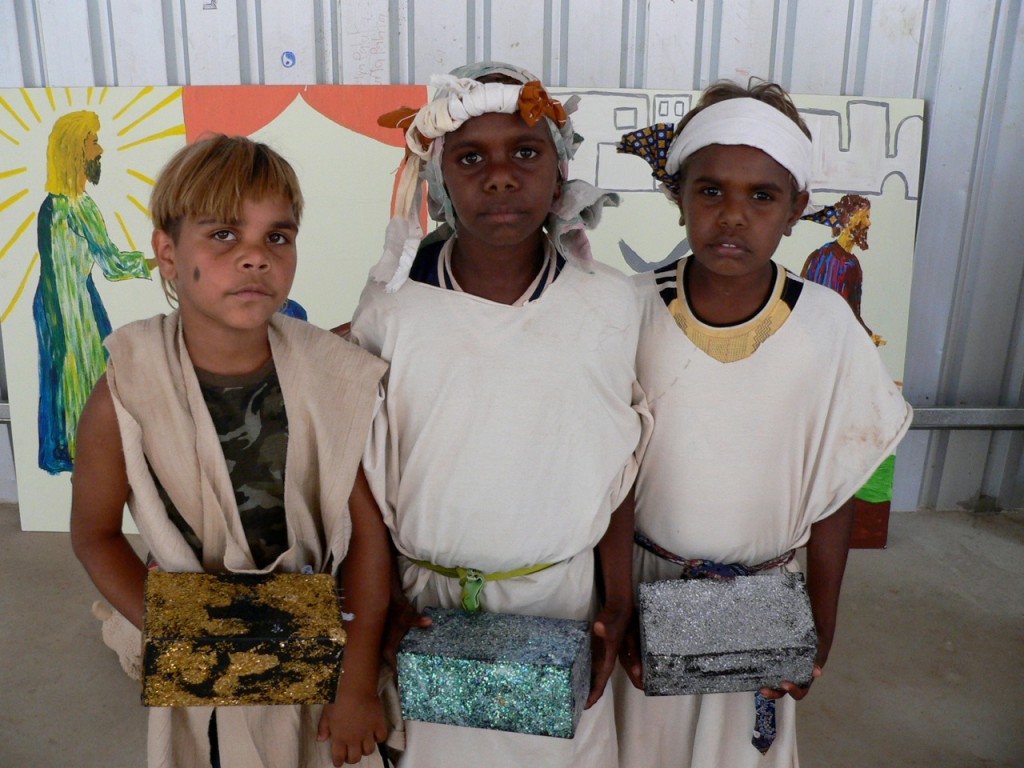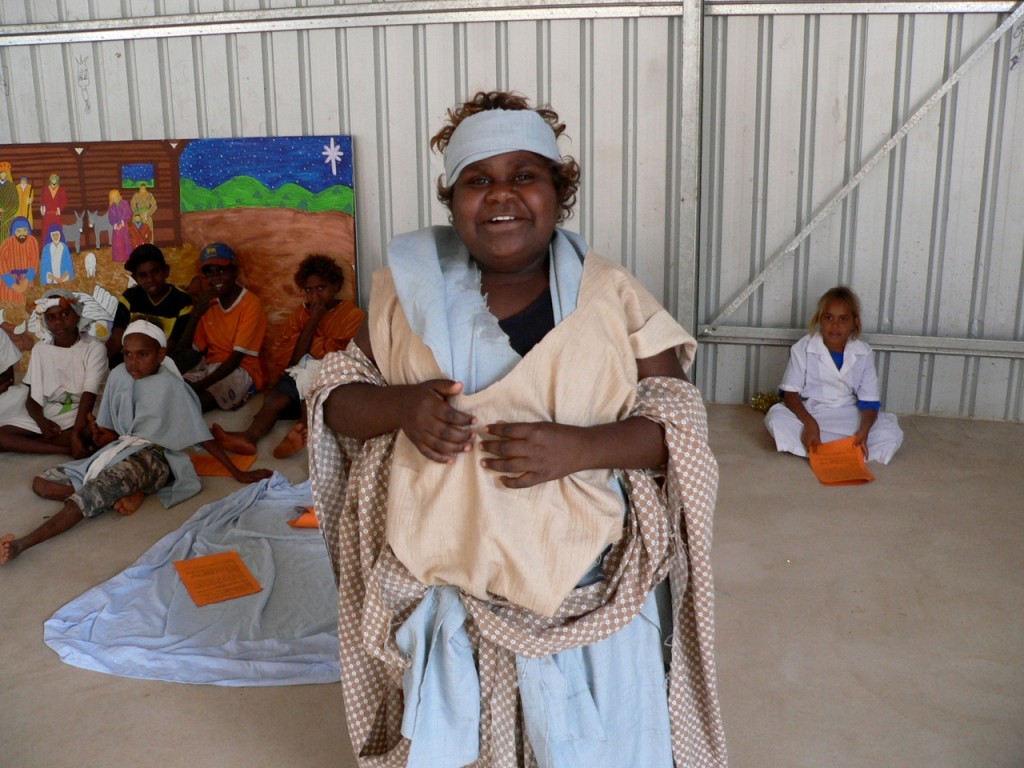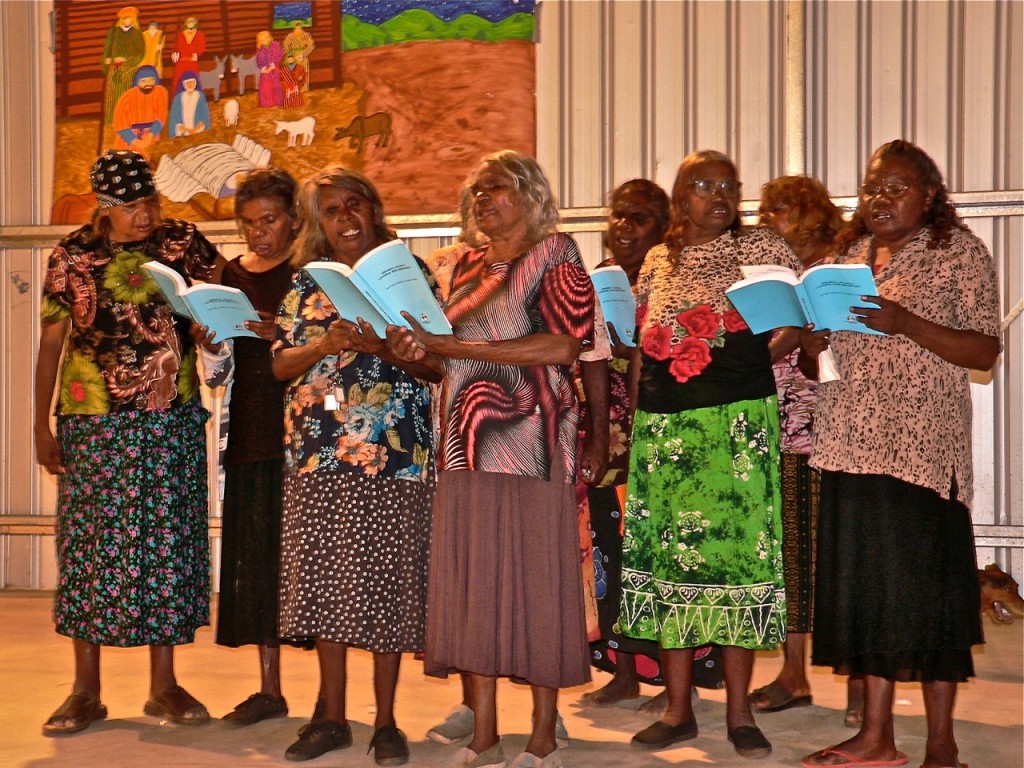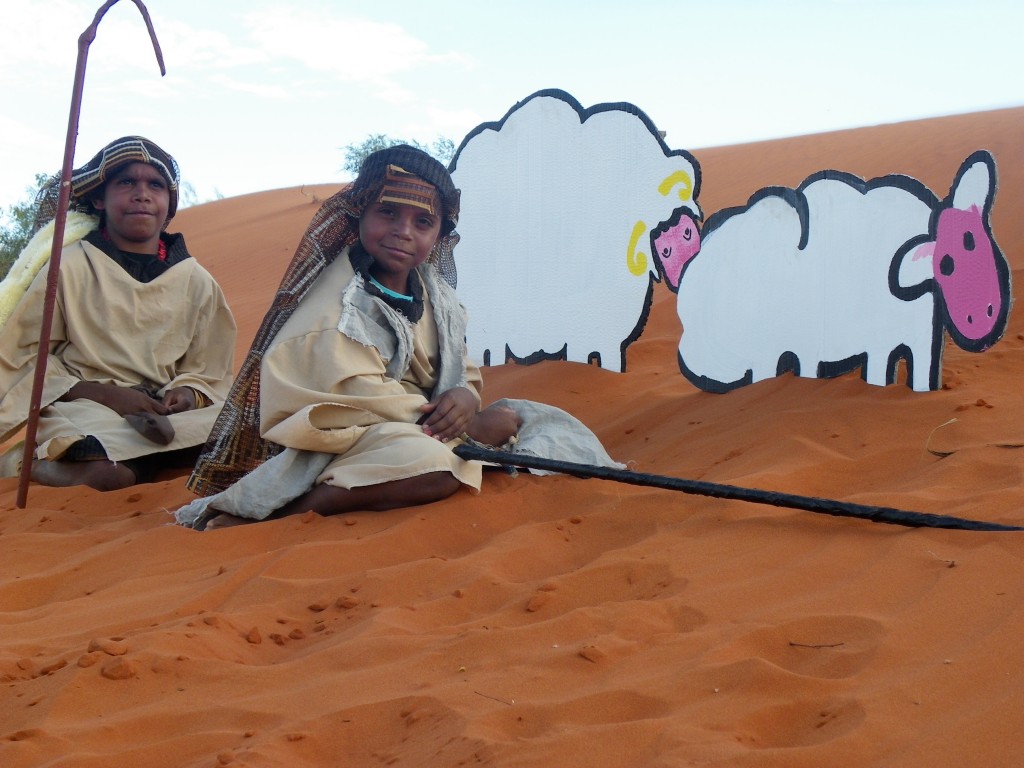Warning to Australian Aboriginal people: Some of the people in these photos have recently died.
More than 200 kilometres west of Alice Springs, the Pitjantjatjara-speaking community of Areyonga wet season rains bring the holiday temperatures down. It’s hot, but not the typical 41-42 degree days you might otherwise find here. The town of about 200 people lies in the valley of deep gorge, but it still gets very dusty and very, very hot.
Joy Kunia is an Aboriginal community leader in Areyonga. She works at the local community store and told Eternity her job, with some of her family, was to decorate the church building for Christmas.
“We put up lights of all different colours in the yard so the kids could see ’em,” she says. On Christmas Day, the town will gather at the local, tin-walled church and sing carols in the Pitjantjatjara language. Some of the women, says Joy, put on a nativity play. At the local school, a play is put on every year.

The three wise men from Areyonga’s annual Christmas play, 2013
“It’s a happy time,” says Joy. “I feel lucky because I’ve got Jesus. Sometimes I talk to people about our saviour. I feel very lucky at Christmas time, to know him.”

A scene from the Areyonga Christmas play, 2013. Photo: Robert Borgas
330 kilometres away in Titjikala, Pastor Philip Wilyuka will lead his Lutheran congregation in similar celebrations. “Singing is a big part of our Christmas,” he tells Eternity. The Aboriginal community enjoys coming together over a good meal on Christmas Day, says Pastor Wilyuka.

Christmas carols sung in Pitjantjatjara, Areyonga. Photo: Robert Borgas
“People around here know what God has done for them. More people come to church on Christmas Day, too. Christmas is very special for everyone here. It’s fulfilling God’s promise, that he will save his people.”
He says it’s a time of great thanksgiving. Which is something we can all share in, whether in the beating desert or on the shore.

Children from Titjitkala dressed up for the annual school nativity play. Photo: Jane Easton.
Email This Story
Why not send this to a friend?
